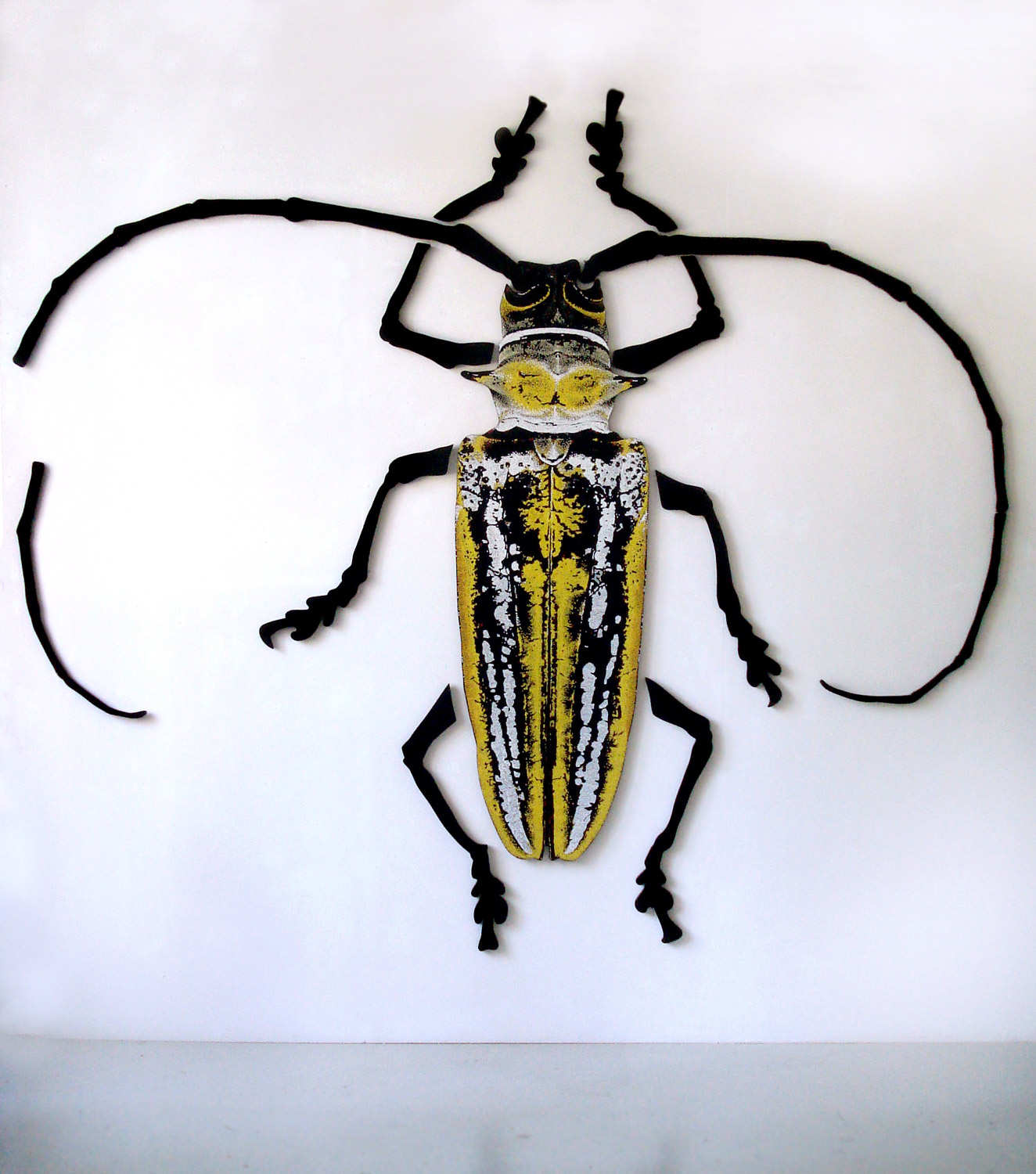
YELLOW BEETLE . 2009
Tempera, black acrylic on MDF, 240 x 300 cm

YELLOW BEETLE . 2009
Tempera, black acrylic on MDF, 240 x 300 cm
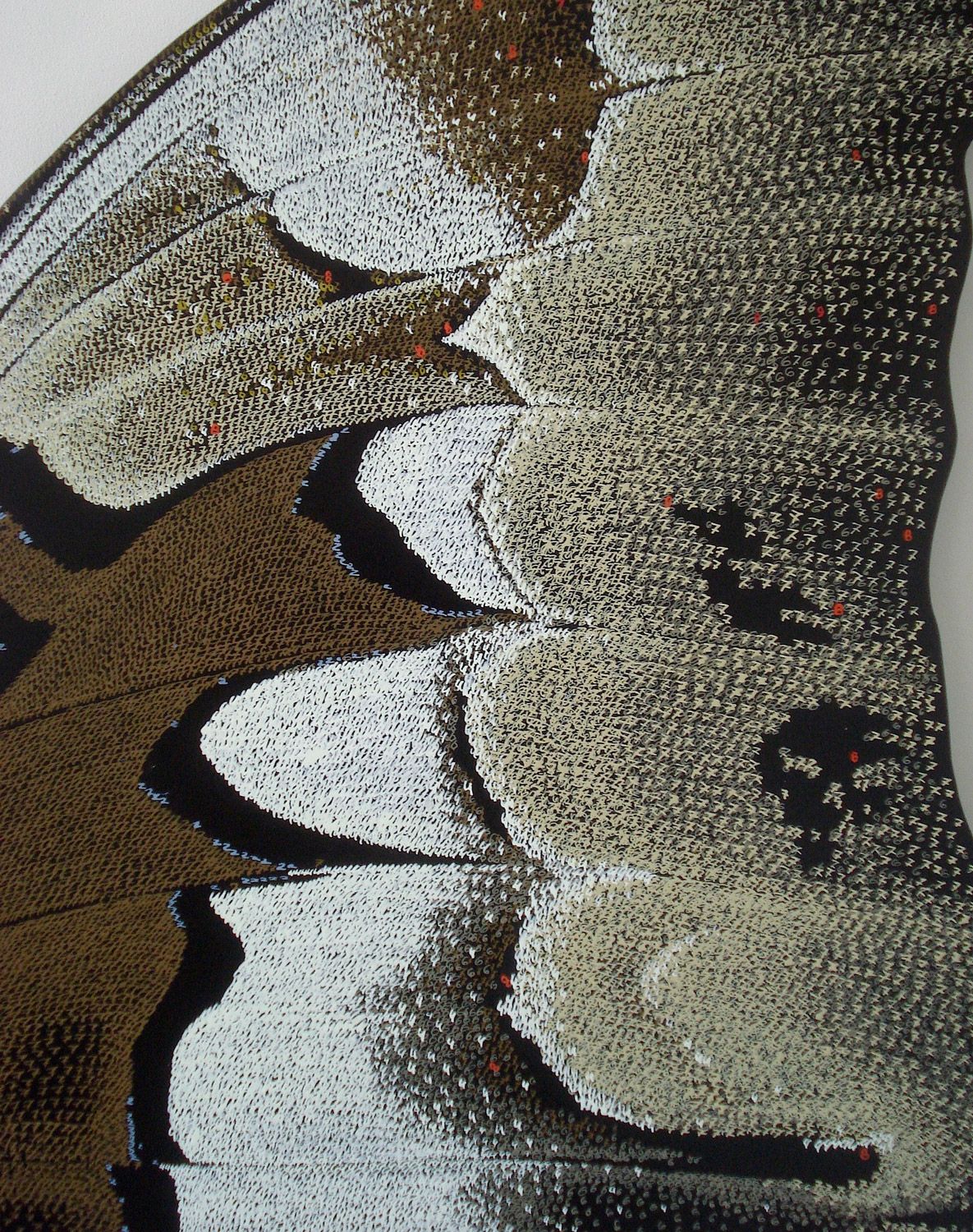
BROWN BUTTERFLY . 2008 / Fragment
Tempera, black acrylic on MDF, 175 x 175 cm
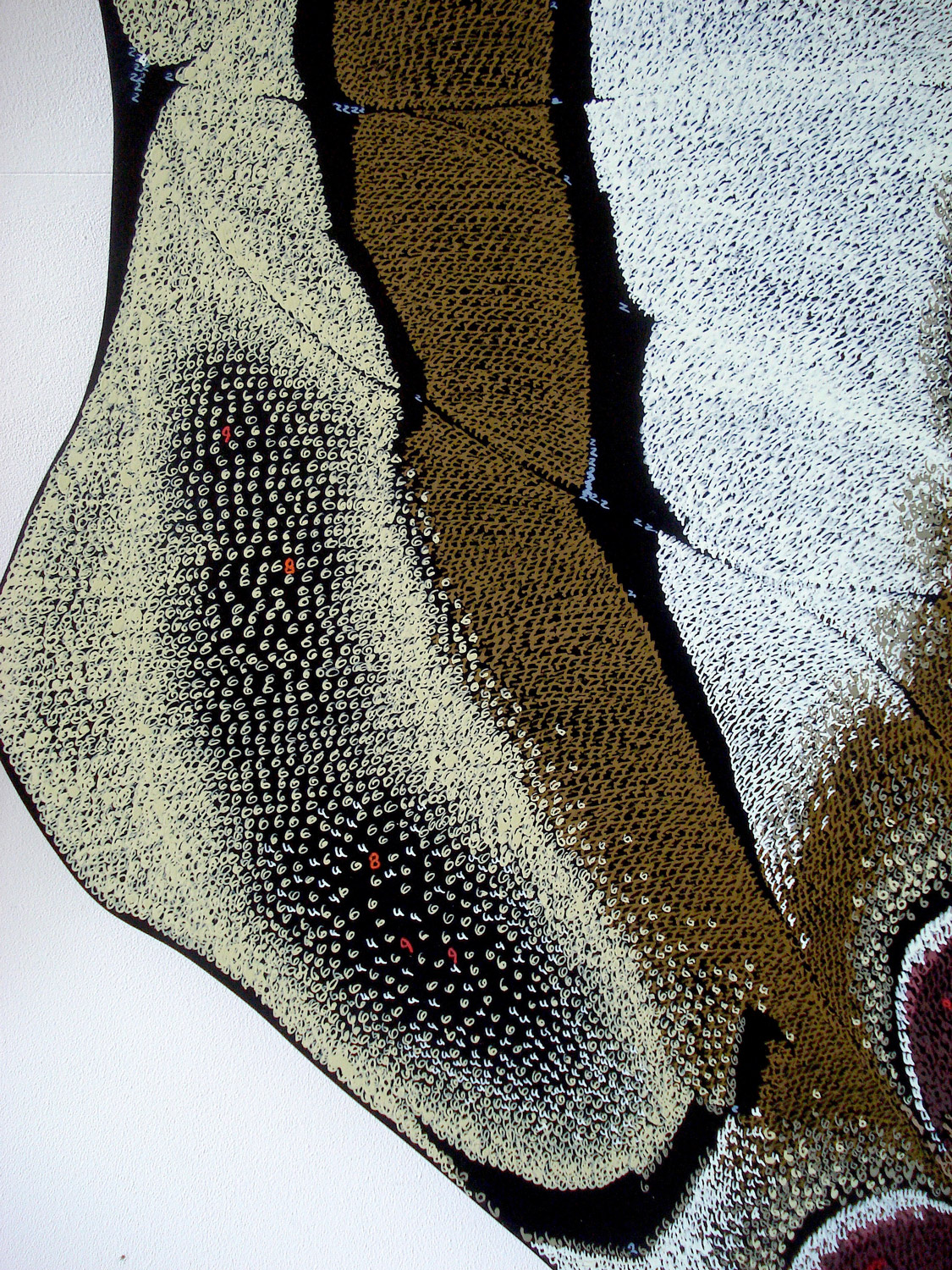
BROWN BUTTERFLY . 2008 / Fragment
Tempera, black acrylic on MDF, 175 x 175 cm
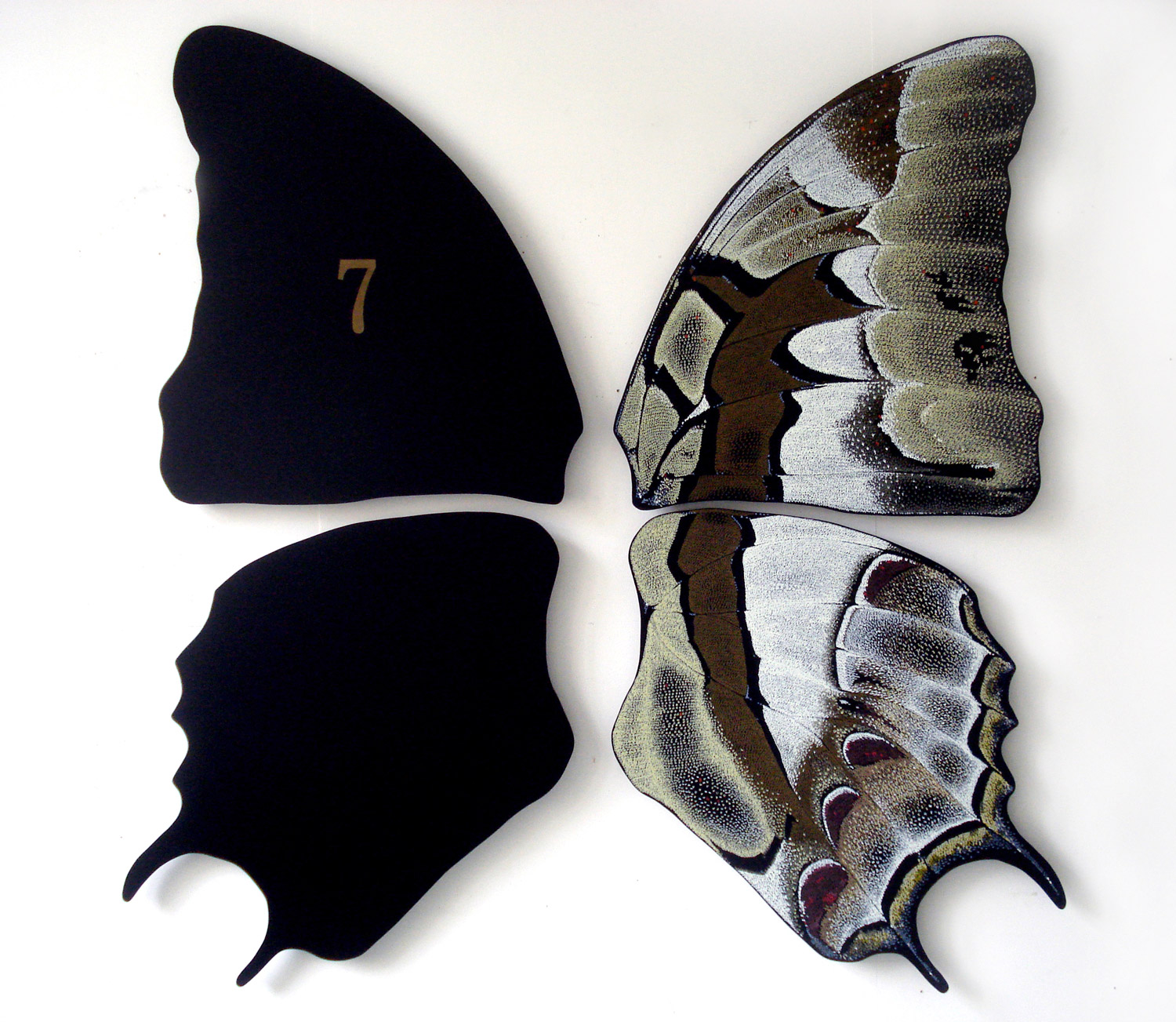
BROWN BUTTERFLY . 2008
Tempera, black acrylic on MDF, 175 x 175 cm
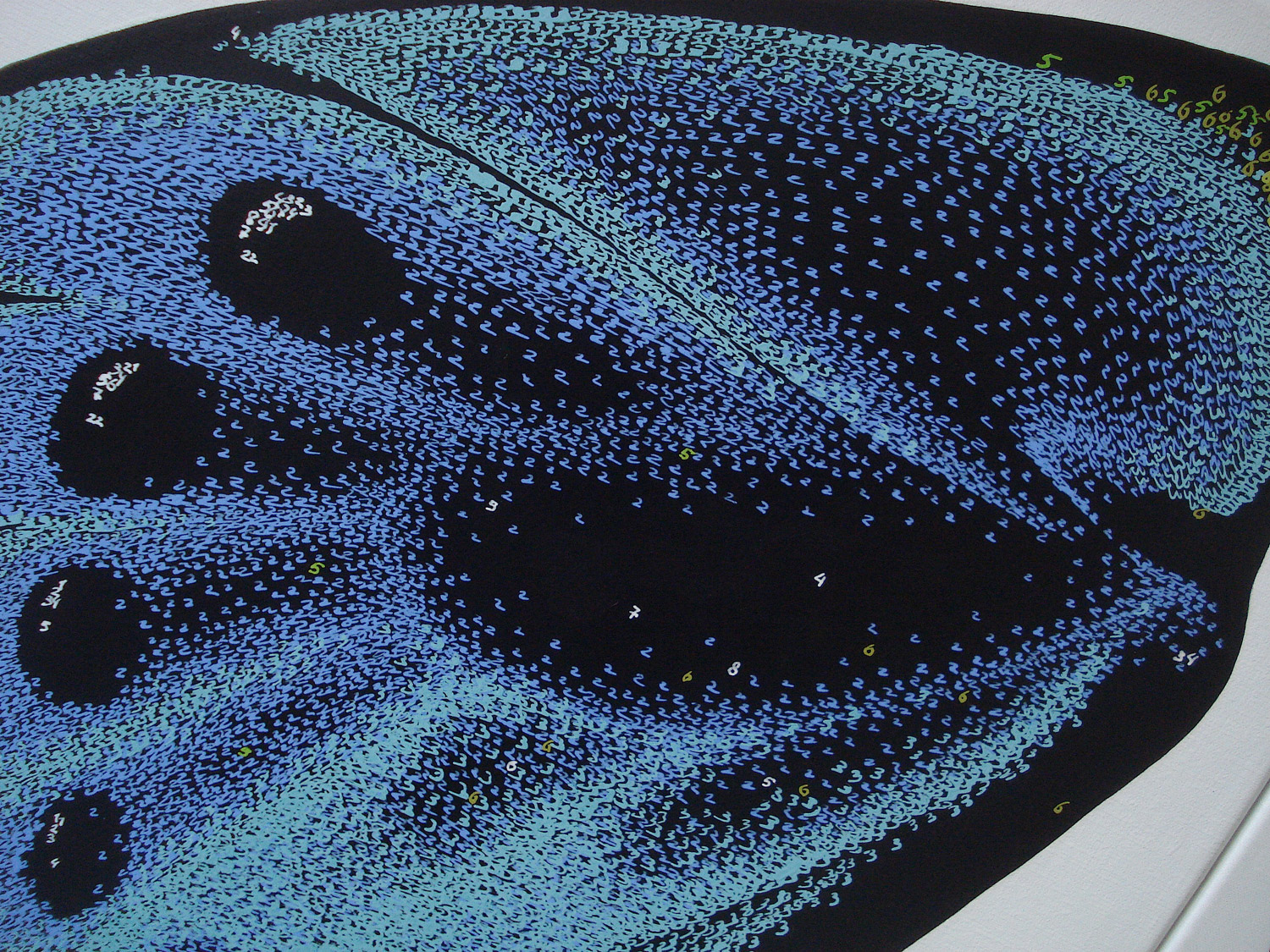
BLUE BUTTERFLY WITH BLACK SPOTS . 2008 / Fragment
Tempera, black acrylic on canvas, 140 x 160 cm
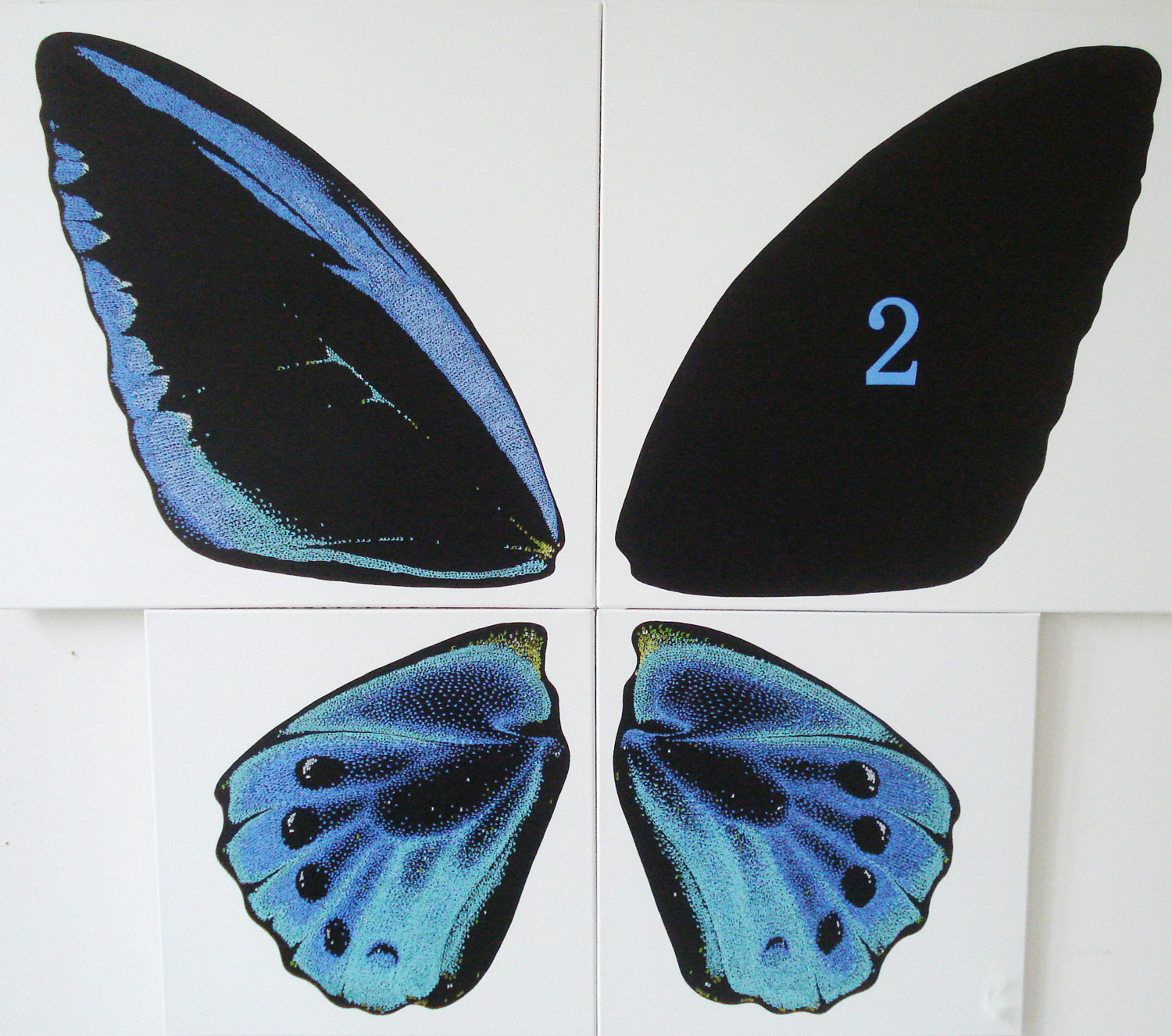
BLUE BUTTERFLY WITH BLACK SPOTS . 2008
Tempera, black acrylic on canvas, 140 x 160 cm
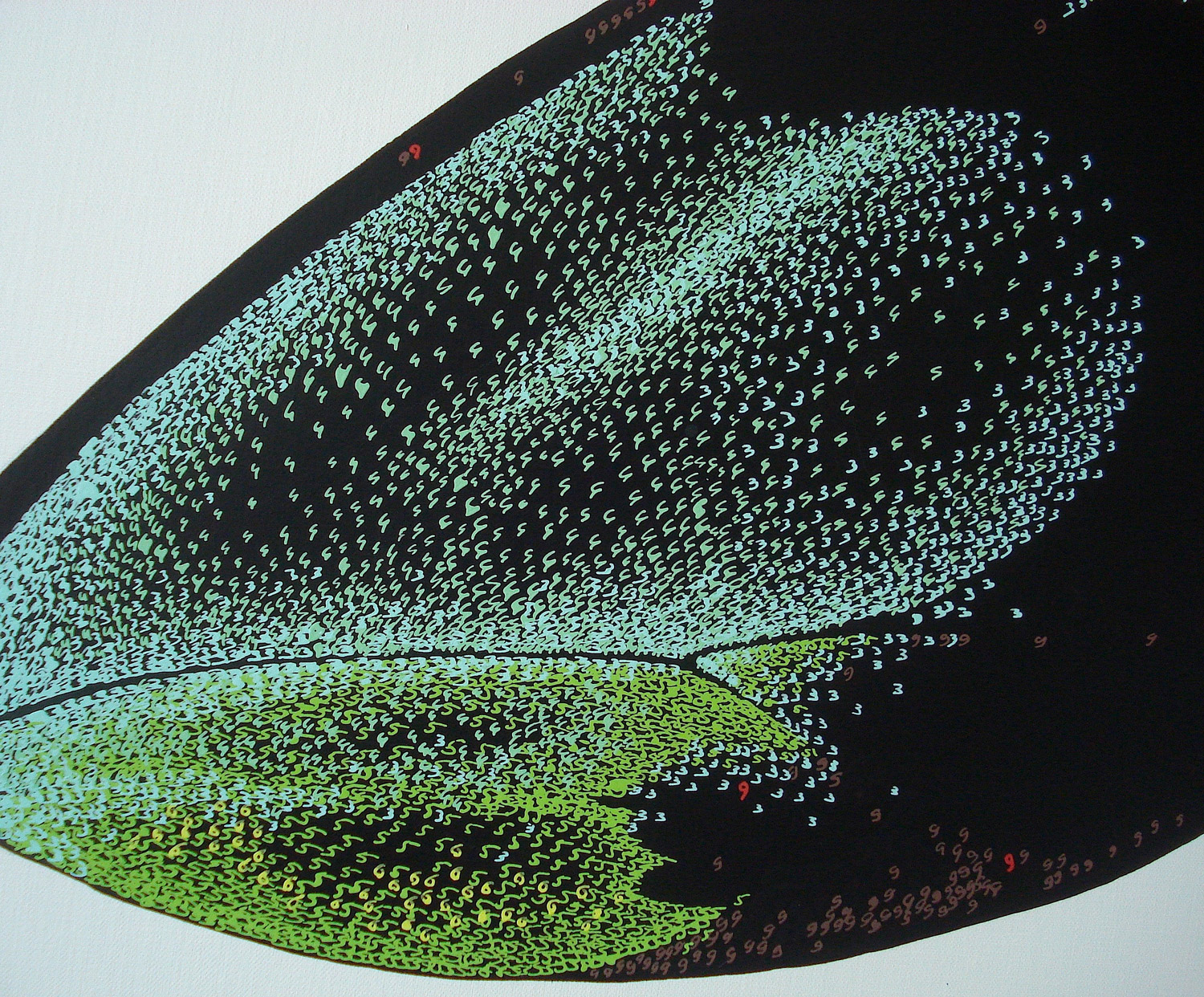
BUTTERFLY #5 . 2008 / Fragment
Tempera, black acrylic on canvas, 120 x 160 cm
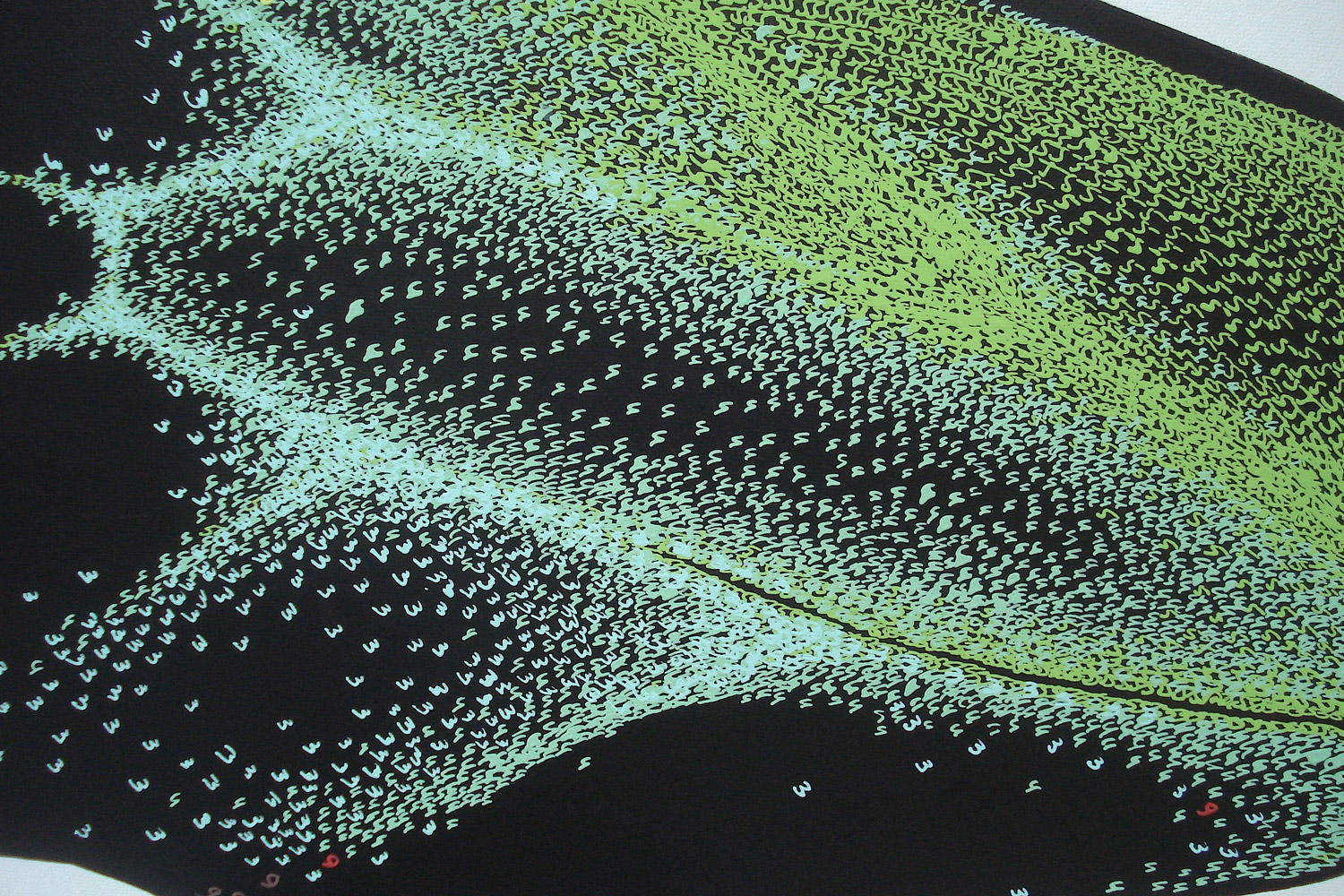
BUTTERFLY #5 . 2008 / Fragment
Tempera, black acrylic on canvas, 120 x 160 cm
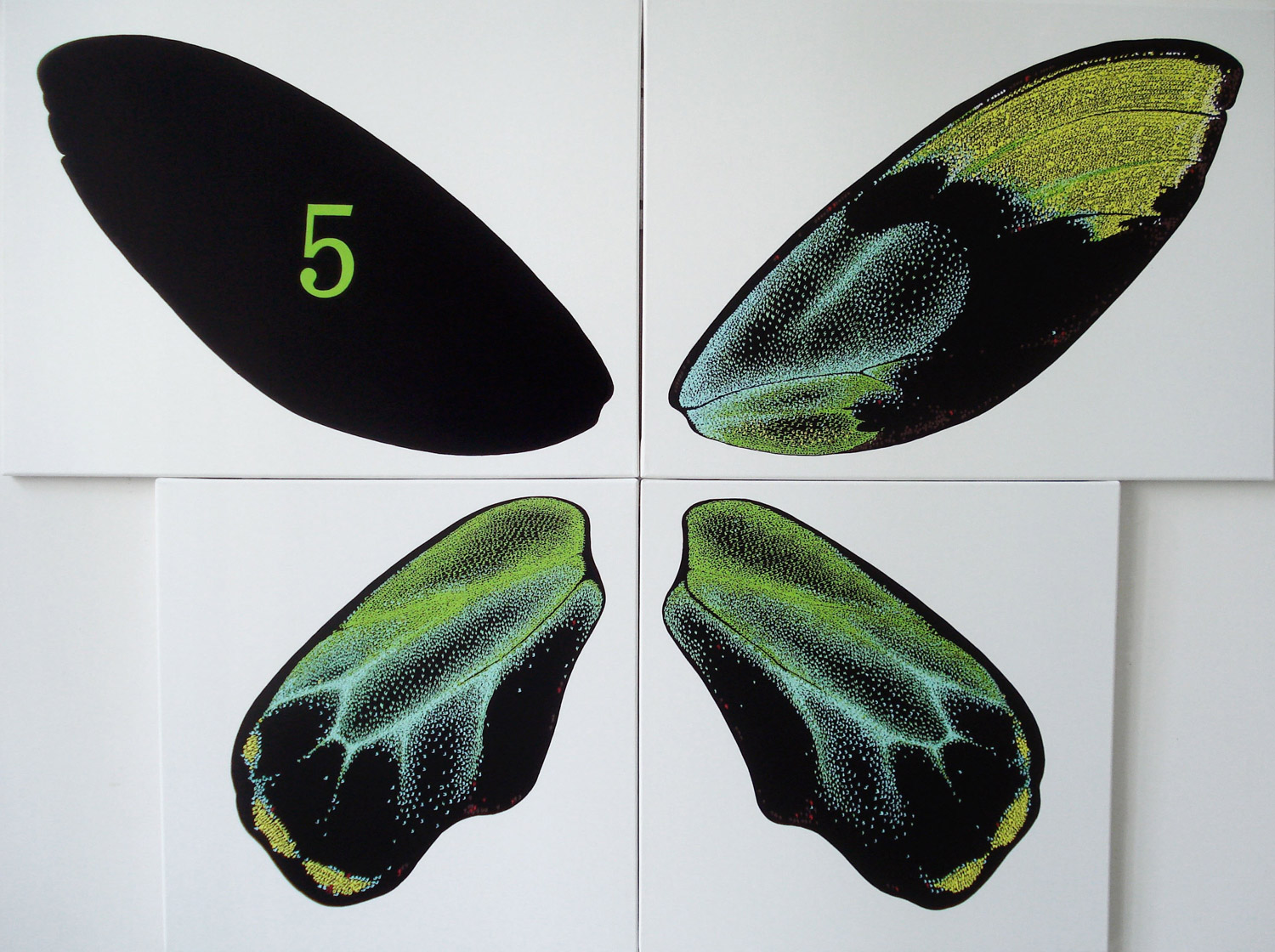
BUTTERFLY #5 . 2008
Tempera, black acrylic on canvas, 120 x 160 cm
The idea of Figurative Numerical Painting has a triple origin. Firstly, it is based on the theoretical work “The Spiral-Driven Development of Colour” which develops the results of a long study of the laws of colour. Secondly, it is part of a quest for a new language in painting that would be truly contemporary. And thirdly, it is meant as an alternative to digital computer painting where images are decomposed into pixels rather than figures.
It is common knowledge that the prism divides sunlight into a spectrum. In physical optics, the length of each colour’s light wave corresponds to a certain sequence of figures. In Figurative Numerical Painting, the shortest wave length, violet, is represented by the number 1. The number 9 represents the longest wave length, purple. The complete spectral scale based on each colour’s wave length is as follows:
1 – violet
2 – blue
3 – blue-green
4 – green
5 – yellow-green
6 – yellow
7 – orange
8 – red
9 – purple
Each colour figure can develop in shades towards black or white. Thus, the entire visible part of the spectrum can be translated into figures that allow a refinement of colour, i.e. it is possible to paint in numbers.
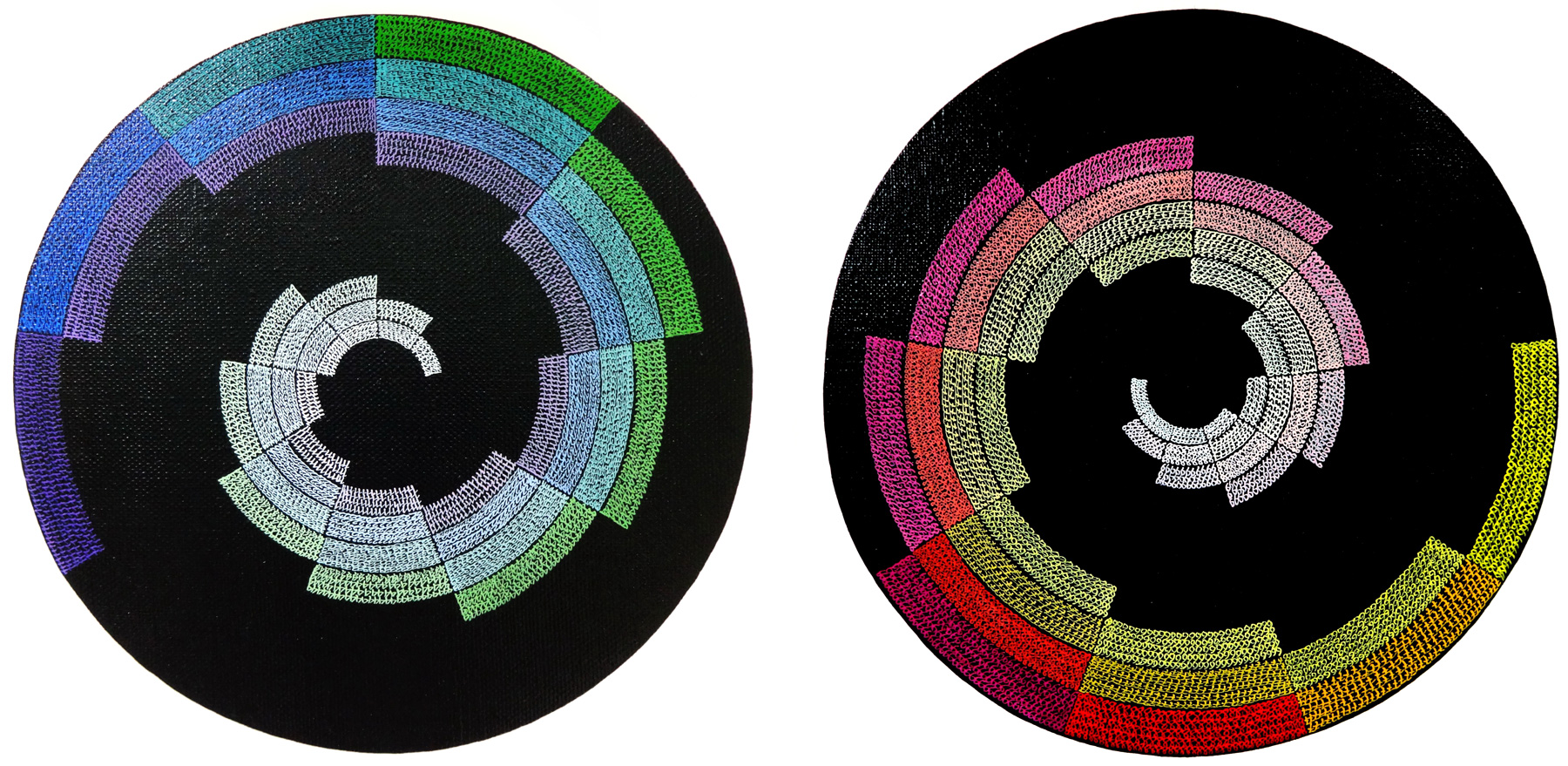
Smoke is one of the most intricate shapes. It is the image of unrest, instability and freedom due to its volatile and even turbulent features. By replacing each minute particle of smoke with monochrome figures, each of which constitute a fraction of the entire form, I explore new means of organizing the compositional space of painting.
Beetles and butterflies participate in the realm of colour. The refraction of sunlight in the feathers of exotic birds and the wings of polychrome butterflies is translated into figures, allowing these shapes to be articulated in a newly structured space.